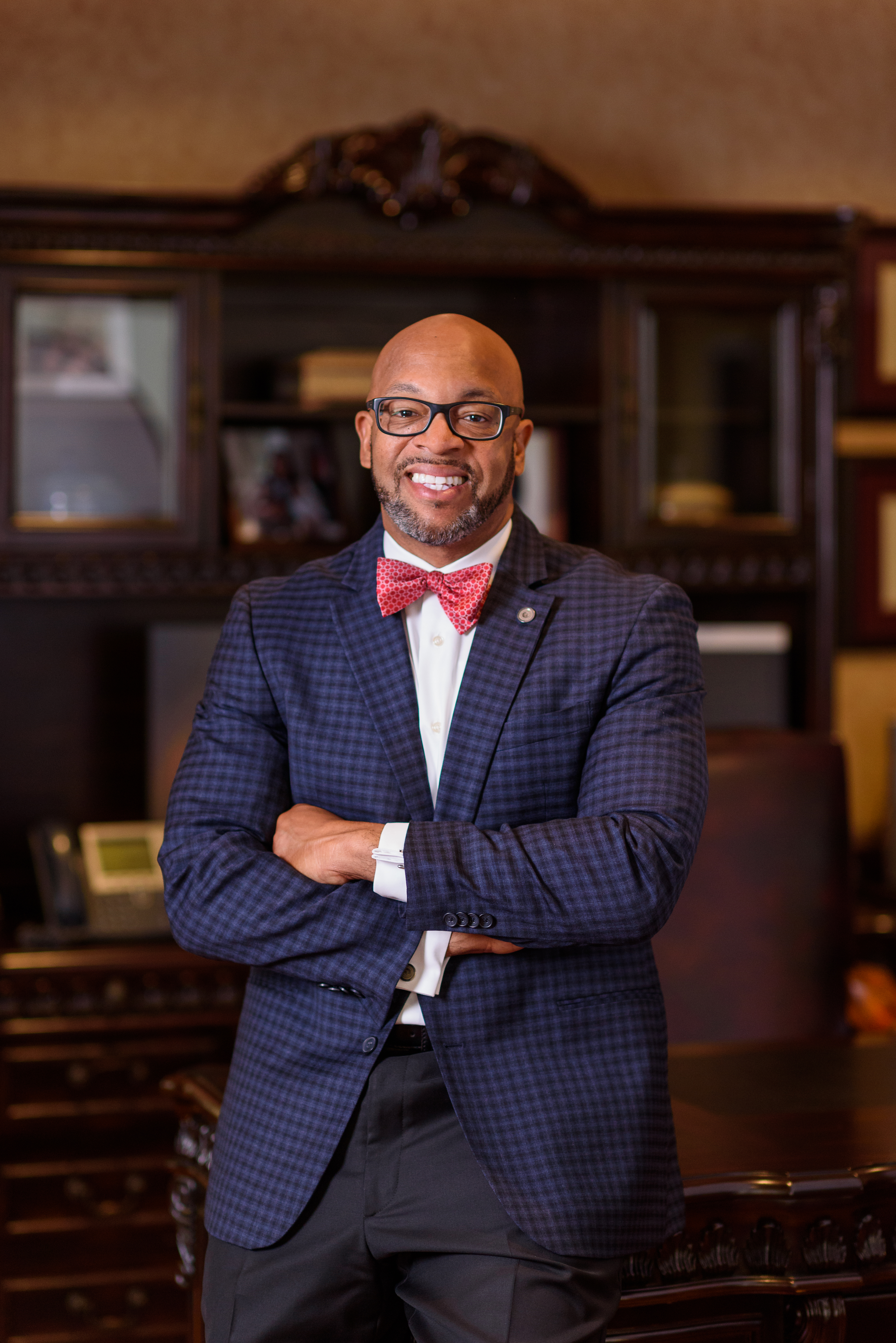You have /5 articles left.
Sign up for a free account or log in.

Radford University
A budget plan by Radford University that could cut the positions of longtime faculty and staff is being widely criticized for violating standard practices during a fiscal crisis and using the crisis as justification for ending long-held worker protections such as tenure.
Some faculty members at the public institution in Virginia, as well as state and national faculty associations, have denounced the plan adopted by Radford’s Board of Visitors authorizing the university president to undertake “reduction strategies that respond to the fiscal impact created by the response to the COVID-19 outbreak.”
Radford's Board of Visitors passed a resolution on June 12 declaring established guidelines outlined in the Teaching and Research Faculty Handbook inapplicable. The decision effectively removed faculty members' ability to file appeals and grievances. It also ended protections for tenured professors by allowing a reduction of the workforce “under fiscal exigency” and “due to program restructuring or discontinuance.”
The resolution took effect immediately and remains in effect until June 2022.
“There is an urgent need for the board to take quick and decisive action, and that need cannot be met while adhering to the fiscal exigency section of the Teaching and Research Faculty Handbook,” the resolution states. “The board wishes to maintain the current handbook process but cannot comply with that process and simultaneously ensure the long term financial health of the university during the current statewide fiscal crisis.”
The response from Radford's chapter of the American Association of University Professors was swift.
 The organization's leaders wrote an open letter to the board, President Brian O. Hemphill (at right) and the faculty, "to express our grave concern that the utter disregard by the Board of Visitors and President Hemphill of the deep traditions of academies of higher learning regarding shared governance, faculty rights, and the sanctity of a Faculty Handbook."
The organization's leaders wrote an open letter to the board, President Brian O. Hemphill (at right) and the faculty, "to express our grave concern that the utter disregard by the Board of Visitors and President Hemphill of the deep traditions of academies of higher learning regarding shared governance, faculty rights, and the sanctity of a Faculty Handbook."
The board's resolution implied that members had no choice but to take such action. It noted that in April, Governor Ralph Northam’s office advised all executive branch agencies, including higher ed institutions, to prepare for state budget cuts for the next two fiscal years -- the period stretching from July 1 through June 30, 2022 -- and to develop budget reduction plans that identify “underperforming activities” and “provide ongoing long term reductions, rather than one-time savings.”
Declining student enrollment and retention were also a factor, Hemphill wrote in a document for faculty and staff outlining two different budget reduction strategies available.
One option was to institute permanent across-the-board cuts, including salary reductions for all employees, department and program cuts, mandatory furloughs, and a universitywide hiring freeze, according to the document. The other option involved more strategic reductions under a defined set of criteria developed in partnership with faculty and staff organizations and taking into account performance measures and other data. "A limited number of programs, areas, and functions" would also be consolidated or eliminated under the strategic option, but academic colleges would be spared.
"This comprehensive approach will examine the university’s operations, programs, and services in order to determine consolidations and/or eliminations consistent with recent trends, which are driven by student needs and choices," Hemphill explained in a June 12 memo to faculty and staff.
Hemphill did not respond to a request for an interview, but his associate vice president for university relations responded to written questions.
Hemphill noted in the memo to faculty that "while other institutions across our state and nation are implementing across-the-board furloughs and salary cuts, Radford has not and does not plan to utilize these broad-based strategies. We will avoid impacting all employees. As such, the Radford family must be committed to strategically addressing the need to re-engineer Radford University for the short-term, as well as the long-term."
Despite the threat of the cost-cutting scenarios and the Board of Visitors' effort to assure the president's ability to undertake such measures, Radford administrators have not formally declared financial exigency, which enables institutions to lay off tenured faculty members under AAUP guidelines. Hemphill implied in the June 12 memo that taking such a step was unwarranted.
"Without question, Radford University is a fiscally strong institution that has been a good steward of public resources by operating in an efficient and lean manner," he wrote. "Our institutional strength will provide tremendous benefit moving forward."
He added, however, that "we must begin to proactively prepare for our future, which will look very different in the wake of the COVID-19 pandemic. That future must include an examination of ways in which we can re-imagine this great university."
Fiscal Crisis Turned Public Relations Crisis
Radford is not alone in invoking the need to prepare and plan for a fiscal crisis, and behave as if it is in one, without actually declaring it. Colleges and universities across the country have taken various steps to slash spending in order to alleviate budget shortfalls brought on by the coronavirus pandemic. The University of Akron's Board of Trustees last week unanimously authorized the elimination of 97 full-time professors -- but only a handful of institutions have gone so far as to declare financial exigency.
Radford administrators seem to have complicated matters by not doing so.
"Schools do not like to declare fiscal exigency partly because it makes them look bad and partly because if they have a policy on it, they have to follow the policy," said Kay Jordan, a professor of religious studies at Radford and treasurer of the university chapter of the AAUP and chair of the Committee on Academic Freedom and Tenure for the Virginia Conference of the AAUP. Nonetheless, "the board has nullified key passages of the Faculty Handbook that violate both our handbook and national standards."
Jordan, who has taught at Radford for 33 years and is a past president of the Faculty Senate, said she and colleagues in the philosophy and religious studies department are concerned that "since the provisions for fiscal exigency that we have lived with are now nullified, everything is up for grabs." She says the Faculty Senate "was backed into a corner" by Hemphill and did not stand up to him, essentially allowing him to view the Faculty Handbook as "not worth the paper it’s written on, because it can be nullified at will."
Faculty members who support the board’s decision and Hemphill's strategic approach to reductions consider the removal of the relevant sections of the handbook a “suspension.” Those who oppose the move describe it as an “expungement.”
Katie Hilden-Clouse, a literacy professor and president of the Faculty Senate, is in the supporters’ camp. She said in an email that once the resolution was adopted, the Faculty Senate Executive Council met regularly with Hemphill “to identify processes for navigating the difficult landscape that our university faces.”
She noted that Hemphill held three forums with faculty over a two-week period to address their concerns and that the Faculty Senate then met on June 26 and voted on a series of motions related to the Board of Visitors’ resolution.
“Our stellar faculty representatives modeled their commitment and dedication to shared governance as we deliberated the complexities of the decisions we were asked to consider,” said a written statement Hilden-Clouse attributed to the Faculty Senate Executive Council. As a result, the Faculty Senate, Administrative and Professional Faculty Senate and Staff Senate and the undergraduate deans "have found consensus around a process that will allow us to move forward as a university to navigate the challenges we face. As always, our faculty are united by our goal to serve our students, and we take seriously our responsibility to ensure that Radford University continues to thrive into the future.”
Tricia Easterling, a professor of science education at Radford and executive board member of the Virginia Conference of the AAUP, questioned the rationale for making such significant policy changes. She also challenged the notion that the plan is generally supported by the rank and file.
"We were given choice A or choice B, but the premise that we had a choice is wrong," she said. "Why are we making this decision so fast, and why aren’t other universities doing the same if they’re in the same position? Why are we asked to suspend the standards that we are actually espousing and modeling to our students? They can’t come to me with emotion, they have to come with evidence."
"We don’t have evidence that we're in fiscal exigency -- in fact, we have evidence of the opposite," said Easterling, who has taught at Radford for 18 years and is membership chairman for the university chapter of the AAUP and a former member of the executive council of the Faculty Senate. "We have no evidence of what metrics are being used, no data. Yet we're suspending the handbook and leaving ourselves in a more vulnerable position."
Her sense of outrage is shared by the presidents of the Virginia Conference of the American Association of University Professors and the Faculty Senate of Virginia, or FSVA, who jointly wrote to the rector of Radford's Board of Visitors, Robert A. Archer, to “condemn” the board's action “for its fundamental violation of the principles of academic freedom protected by tenure and shared governance, and for the likely damage this resolution will bring to the integrity of the institution for which the Board has a fiduciary responsibility.”
Louise Freeman, president of the Virginia AAUP, and Carmen Rodríguez, president of the Faculty Senate of Virginia, noted in their June 15 letter that the sections in the Faculty Handbook deemed inapplicable exist to allow faculty member involvement in decisions about workforce reductions “in anticipation of the very circumstances” the university is facing.
“To declare these sections inapplicable demonstrates an insulting degree of disregard for the ability of the faculty to provide essential guidance regarding the difficult decisions Radford University will face,” they wrote. “We also note that the resolution preemptively declares these sections inapplicable without actually declaring fiscal exigency. Instead, the resolution states the Board ‘anticipates a reduction in force may be required.’”
The two organizations were not alone in their criticisms of the board’s actions. The executive committee of the University of Mary Washington University Faculty Council weighed in the day after Freeman and Rodríguez sent their letter to Rector Archer.
"We, furthermore, offer our solidarity with faculty colleagues at Radford University who stand to suffer the consequences of this resolution," they wrote. "All faculty of Virginia’s higher education system must stand united in defending our professional rights and in opposing short-sighted, reactionary decisions in response to a temporary public health crisis that will cause unnecessarily deep, long-lasting, and possibly irreparable damage to our institutions and profession."
Freeman and Rodríguez said their organizations are calling on the Board of Visitors to reverse their decision and “to confirm a broader understanding of its fiduciary responsibilities to Radford University that includes the principles of academic freedom and shared governance. We also call upon President Hemphill to address the current circumstances in full accord with the sections declared inapplicable by the Board and to assure that the resolution itself is reversed,” they wrote.
Gregory F. Scholtz, director of the Department of Academic Freedom, Tenure and Governance at the national AAUP, said in a letter to Glen Martin, president of Radford's AAUP chapter, that the Board of Visitors action "carries extremely troubling implications for academic freedom, tenure and governance at Radford University." (Scholtz was responding to a formal request for input from Martin.)
"We would urge the chapter to work with faculty governance bodies and the administration to persuade the board of visitors to restore the deleted sections of the faculty handbook immediately and to adhere to their provisions in any future actions addressing the financial crisis facing the university," Scholtz wrote. "Needless to say, the AAUP would regard as unacceptable any measure taken to close programs and terminate appointments in disregard of the AAUP-supported standards incorporated into the expunged handbook provisions."
Martin followed suit with a letter to board members asserting they'd violated national standards of good governance by "arbitrarily" suspending key sections of the Faculty Handbook and "granting inordinate powers to" Hemphill. In doing so, the board and Hemphill also violated "the internal principles of the Faculty Handbook and the Faculty Senate Constitution and bylaws," he wrote.
"This is an embarrassment to Radford University, its faculty, staff, and administrators," Martin wrote.
He asked the board to rescind their suspension of sections of the Faculty Handbook and "allow genuine faculty participation in facing this crisis rather than resorting to President Hemphill’s unilateral and coercive approach."
Differences in Opinions
Hemphill and faculty and staff leaders seemed to be on the same page when he sent out a long memo outlining the budget reduction plan.
The email, addressed to faculty and staff, mentioned “complex” and “difficult” deliberations about the reduction strategies, but he noted that broad consensus was eventually reached.
"As shared governance leaders and groups joined together to engage all constituents," he wrote, "our campus shared differing perspectives, but emerged united to represent the best interest of Radford University as we prepare to respond to the financial challenges, both short-term and long-term, resulting from the COVID-19 global health pandemic."
The presidents of the Faculty Senate, the Staff Senate and the AP Faculty Senate, which serves as the liaison between Radford’s administrative and professional faculty and “the university community”, were each quoted in the memo as being united in their support for the plan.
Hilden-Clouse, the Faculty Senate president, said they "have found consensus around a process that will allow us to move forward as a University to navigate the challenges we face."
Kristina Contreras, president of the Staff Senate, which unanimously endorsed the strategic approach to budget reduction, said "This decision was not made lightly, and our vote is representative of our constituents. We believe this option allows our University to continue to efficiently serve students in a unique, personal way, while keeping the best interest of staff and faculty in mind and preserving the long-term health of the University."
Ashlee Claud, president of the Administrative and Professional Faculty Senate, said as her group considered the budget options presented by the university, the "driving forces were to be inclusive of the AP Faculty community and save as many jobs as possible in order to keep the Radford family intact. We unanimously chose the strategic option. This choice allows for a higher level of creativity and flexibility, which will grant opportunities to address the University’s budget issues as a whole rather than as several divisions. We also value President Hemphill’s leadership in bringing together shared governance and leadership groups to collectively rise to this challenge."
The Radford chapter of the AAUP strongly disagrees. Its open letter urged faculty members not to "become complicit in these degrading options" and warned that doing so would permanently diminish their ability to assert their rights.
"How likely will shared governance be in our future, if we abandon it now?" the letter said. "We share these circumstances, on some level or another we share fates. Why shouldn’t we be involved in the formulation of options when we are the backbone of the university? Don’t we have the capacity to address these circumstances collectively?"
"Fiscal exigency has not been declared, yet we are caving in to its conditions nevertheless. Faculty should refuse these false options and insist on restoring the Handbook and real participation in the formulation of our options."








